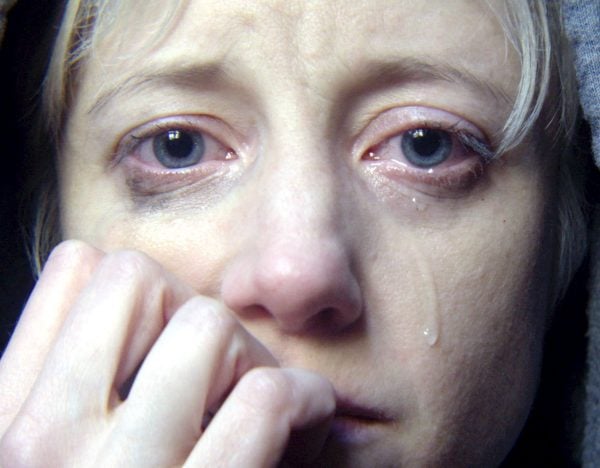This post contains spoilers.
No show dangles dystopia in front of our eyes like Black Mirror.
Now in its fourth season, each episode of the Netflix Sci-fi/Thriller acts as a stand-alone mini-movie set in the future. It’s a future overrun by invasive gadgets and techno-paranoia which, the show suggests, is far nearer than we’d like to think.
However for all its thematic brilliance – its darkness and ominous foreshadowing – this most recent season lacked the one thing that made the others so very special.
Subtlety.
LISTEN: We give a rundown of Black Mirror Season 3, just in case you need a refresher, on our pop culture podcast The Binge. Post continues after audio.
Unlike fine wine, television shows don’t tend to get better with age.
Seven years on from Black Mirror’s original Season One release date in 2011, it seems Brooker is done with beating around the bush. Juiced of elusiveness, Season Four leaves little to the imagination.
Instead, Brooker gives us shock value: a filmography trait symptomatic of our modern thirst for action.
Episode 4, Metalhead, is without a doubt the weakest of the latest bunch. In a black-and-white post-apocalyptic desert ruled by evil mini-robots, one woman battles for survival after watching two friends’ heads turn to mush at the hand of aforementioned robots.
The episode has potential – the bleakness of this world and how it came to be is intriguing. But we never find out. Instead, the episode ends with our crestfallen protagonist cutting her own throat, and a ‘final reveal’ involving teddy bears that seems farcical at best.

































































































